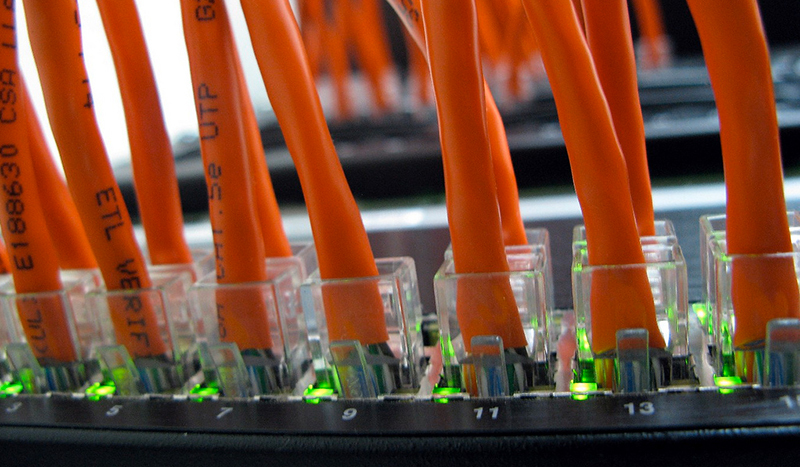Why Even A Net Neutrality Rewrite Wouldn’t Alleviate Slow Netflix Service
This is because the net neutrality rules only deal with how ISPs handle data during that so-called “last mile” of service directly to the end-user. While the reason many Verizon customers are watching House of Cards in fits and starts (or just giving up on it before Kevin Spacey reveals he’s a Hungarian drug lord with Gwyneth Paltrow’s head in a box) is a bottleneck that happens further up the stream.
As we wrote last summer, many months before a federal appeals court gutted net neutrality, the source of the Verizon/Netflix congestion appeared to be occurring at peering ports, the connection between Netflix’s bandwidth provider and the ISP (in this case, Verizon).
Before Netflix became the largest single source of downstream data in the U.S., it was common practice for peering partners to open and close ports as needed to handle traffic.
Cogent Communications, one of Netflix’s largest bandwidth vendors, said last summer that Verizon had previously opened up new ports to ease or prevent congestion when traffic hit around 50% capacity, but that the telecom giant had recently begun letting some ports reach 100% capacity without acting.
Today’s Wall Street Journal provides even more information about the ongoing standoff, with some sources saying Verizon is balking at upgrading its connections to Netflix’s bandwidth providers while others point a finger at Netflix for trying to unload so much data via the least-expensive (and maybe not the most efficient) way possible.
It basically boils down to the fact that long-held peering practices used to work because the extra ports opened by ISPs to alleviate congestion would ultimately be balanced out by the bandwidth providers who picked up the slack for traffic going in the opposite direction. But with video streaming, the upstream bandwidth needed is a sliver of what’s required for bringing HD movies to consumers’ homes.
Verizon apparently doesn’t see the benefit in doing Cogent and Netflix a favor if it isn’t getting anything in return. Since the old net neutrality rules didn’t require ISPs to go above and beyond existing peering arrangements (and the new rules probably won’t cover the topic either), expect Verizon and other ISPs to continue to allow Netflix traffic to build up until the streaming service either cries “Uncle” and pays for better service or routes their traffic in a more efficient (and probably more costly) manner.
Want more consumer news? Visit our parent organization, Consumer Reports, for the latest on scams, recalls, and other consumer issues.


